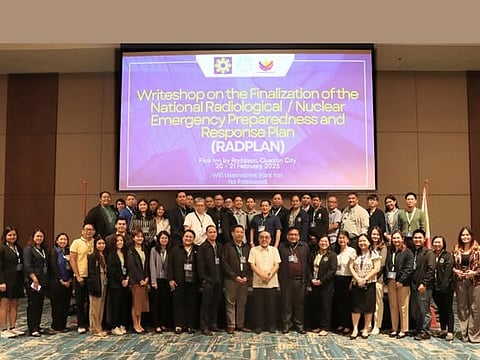
- NEWS
- the EDIT
- COMMENTARY
- BUSINESS
- LIFE
- SHOW
- ACTION
- GLOBAL GOALS
- SNAPS
- DYARYO TIRADA
- MORE

The Philippines has finalized the National Nuclear and Radiological Emergency Preparedness and Response Plan (RADPLAN), strengthening emergency readiness and advancing its nuclear energy goals.
The plan establishes clear protocols to protect public health and the environment, covering nuclear and radiological incidents from medical, industrial, and regional power sources.
Upon finalization, the plan undergoes a high-level review by the National Disaster Risk Reduction and Management Council (NDRRMC) to ensure alignment with national policies.
"This plan strengthens the country’s emergency response readiness, reducing risks from both internal and external nuclear and radiological hazards," Energy Director Nenito C. Jariel Jr., who heads the Nuclear Energy Program Inter-Agency Committee (NEP-IAC) Subcommittee on Emergency Planning, said on Tuesday.
The Departments of Energy (DOE) and Science and Technology-Philippine Nuclear Research Institute (DOST-PNRI) gathered 70 representatives from 23 agencies under NEP-IAC, including NDRRMC experts, to complete the plan.
Aside from the RADPLAN, the NEP-IAC is also developing the Nuclear Energy Program Roadmap to meet the 19 infrastructure requirements of the International Atomic Energy Agency (IAEA).
The committee reviews compliance with domestic and international nuclear safety standards to finalize regulatory frameworks before the construction of the country’s first nuclear power plant.
Under the Philippine Energy Plan, the government aims to introduce 1,200 megawatts (MW) of nuclear capacity by 2032, expanding to 2,600 MW by 2035 and 4,800 MW by 2050.
